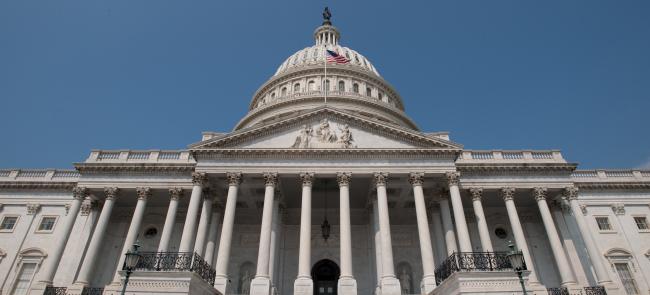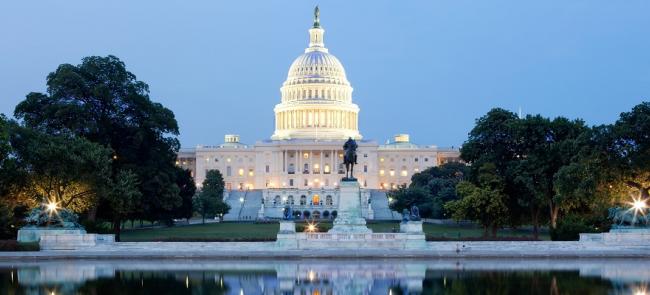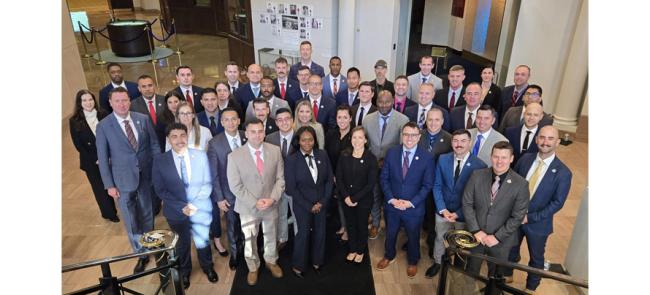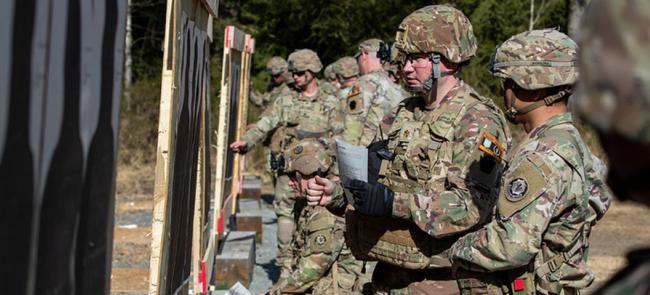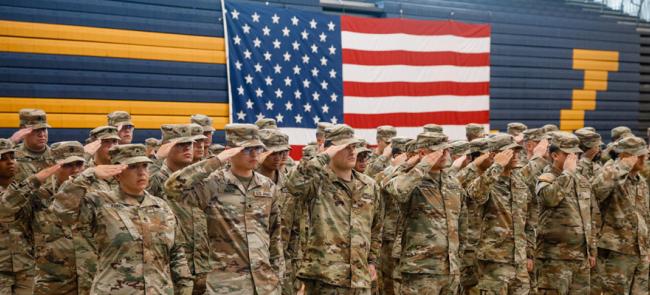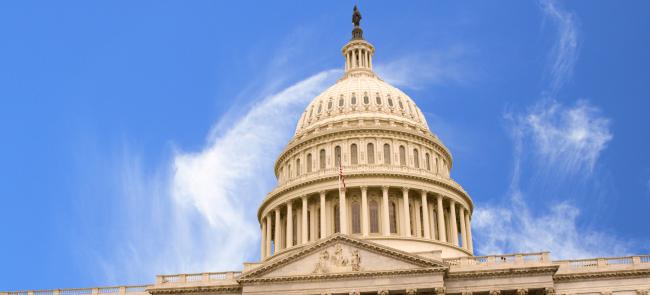
National Guard officers are waiting longer for federal recognition of their state promotions, and Congress has noticed.
Lawmakers last week introduced bipartisan, bicameral legislation to improve and streamline the promotion process for Guard officers and warrant officers to ensure they can progress in their careers without bureaucratic delays.
The National Guard Promotion Improvement Act would assess and review the current process, recommend improvements and provide back pay to those with delayed promotions.
Sen. Tammy Duckworth, D-Ill., and Sen. Marsha Blackburn, R-Tenn., introduced the measure in the Senate. Rep. Anthony G. Brown, D-Md., and Rep. Trent Kelly, R-Miss., debuted the House version.
Duckworth is a retired Army Guard lieutenant colonel, Kelly is an Army Guard major general and Brown is a retired Army Reserve colonel.
“The current bureaucratic process results in lengthy delays that are unacceptable,” Duckworth said in a release. “Every member of the National Guard deserves their promotions to be recognized on time so they don’t fall behind in their careers.”
NGAUS assisted with developing the legislation.
Federal recognition, or FEDREC, involves several administrative reviews that are often redundant.
The first review occurs at the state or territory level, the second at the National Guard Bureau and the third at either the Department of the Army or Air Force.
Bill sponsors say the NGB reports Army Guard promotions take an average of 240 days for processing. Air Guard promotions typically take 180-210 days.
The Guard primarily conducts vacancy promotions, so many affected officers serve in and perform duties suited for their next rank while earning the pay and wearing the identification from their original rank.
While service secretaries have the authority to adjust the effective date of rank for delayed promotions, lawmakers say they seldom use it.
The National Guard Promotion Improvement Act would:
- Request an outside review of the National Guard FEDREC system. The bill would require the Defense Department to contract a research and development corporation to study the Guard officer and warrant officer promotion system and recommend improvements.
- Provide consistent Congressional oversight of this longstanding issue. It would require an annual report to Congress on various specific metrics to ensure consistent oversight of the status of delayed promotions. This reporting requirement would decrease in frequency as the DoD reduces the average delay for federal recognition of promotions.
- Ensure service members receive back pay for delayed promotions. The bill would require the service secretaries to backdate the effective date of rank for Guard officers with delayed promotions to no later than 60 days after the date NGB receives the promotion, ensuring those impacted receive their proper benefits and advance in their careers.
This is the second time in recent years lawmakers have addressed FEDREC delays.
A 2017 NGAUS survey found nearly half of recently promoted Guard officers waited more than six months for the federal recognition of their state promotion. Many waited more than one year. One waited more than four years.
Publicly releasing the results caught the attention of the media and some lawmakers, who added a provision in the fiscal 2019 National Defense Authorization Act requiring the services to streamline the process.
Wait times initially decreased but are now nearly as long as they were in 2017.
- By John Goheen





